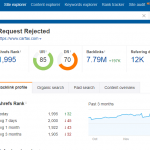Interim Finance Directors in 2024 are likely interested in a range of topics that reflect the evolving business landscape, emerging financial technologies, regulatory changes, and the global economic environment. Their focus is not only on navigating current challenges but also on positioning the organizations they serve for future growth and resilience. Here are some key areas of interest:
- Economic and Market Trends: Understanding global and local economic indicators, market trends, and their implications on business operations and strategy. This includes interest in inflation rates, interest rate changes, geopolitical tensions, and supply chain disruptions.
- Financial Technology and Digital Transformation: Leveraging new technologies to improve financial operations, including blockchain for secure transactions, AI and machine learning for financial analysis and forecasting, and digital payment solutions. They’re also interested in how digital transformation can streamline operations, improve accuracy, and enhance decision-making.
- Environmental, Social, and Governance (ESG) Initiatives: Developing and implementing strategies for sustainability and social responsibility, including carbon footprint reduction, sustainable finance, and diversity and inclusion efforts. This also encompasses navigating the regulatory landscape around ESG reporting and compliance.
- Risk Management and Compliance: Staying abreast of changes in financial regulations, tax laws, and compliance requirements across different jurisdictions. This includes interest in cybersecurity risk management, data protection laws, and financial reporting standards.
- Strategic Financial Planning and Analysis: Developing strategies for growth, investment, and efficiency improvements. This involves scenario planning, financial modeling, and analysis to guide decision-making, especially in uncertain economic times.
- Mergers and Acquisitions (M&A) and Restructuring: Strategies for business expansion, consolidation, or divestiture, including due diligence, valuation, and integration planning. Interest also extends to restructuring operations for efficiency and cost reduction.
- Cash Flow Management and Access to Capital: Strategies for optimizing cash flow, including working capital management, financing options, and capital raising. This is particularly relevant in a volatile market environment where access to capital can be challenging.
- Advanced Analytics and Big Data: Utilizing big data and analytics to gain insights into customer behavior, market trends, and operational efficiency. This includes predictive analytics for financial forecasting and strategic planning.
- Remote Work and Team Management: Best practices for managing finance teams in a hybrid or remote work environment, including tools for collaboration, productivity, and maintaining team cohesion.
- Professional Development and Networking: Staying connected with industry peers, participating in professional associations, and keeping up-to-date with the latest financial management practices and certifications.
An Interim Finance Director (FD) plays a crucial role in organizations, stepping in to manage the finance function during periods of transition, change, or crisis. These professionals are typically experienced in financial management and are hired on a temporary basis to fill a gap in leadership, manage specific projects, or navigate through challenging times. Here are the key responsibilities and activities an Interim FD might undertake:
- Strategic Financial Management: Interim FDs provide strategic oversight of a company’s financial operations, ensuring that the organization’s financial strategy aligns with its overall business goals. They make high-level decisions regarding investment, capital structure, and long-term financial planning.
- Financial Reporting and Analysis: They oversee the preparation of accurate and timely financial reports, including profit and loss statements, balance sheets, and cash flow statements. Interim FDs analyze these reports to identify trends, challenges, and opportunities, providing insights and recommendations to the senior management team.
- Cash Flow Management: Managing the company’s cash flow is a critical task, ensuring that the organization has the liquidity to meet its obligations and invest in growth opportunities. This involves careful management of receivables, payables, and inventory.
- Budgeting and Forecasting: Interim FDs are responsible for developing and managing the budgeting process, setting financial targets, and forecasting future financial performance. This helps the organization plan its activities and allocate resources effectively.
- Risk Management and Compliance: They ensure that the company adheres to all financial regulations and compliance requirements. This includes managing financial risks related to currency fluctuations, interest rates, and credit, as well as overseeing internal controls to prevent fraud and errors.
- Leadership and Team Management: Interim FDs often lead the finance team, providing guidance, motivation, and support. They work to build a strong team dynamic, ensuring that staff are focused, efficient, and aligned with the company’s goals.
- Operational Efficiency: They review and optimize financial and operational processes to improve efficiency, reduce costs, and enhance profitability. This can include implementing new financial systems or technologies.
- Mergers, Acquisitions, and Divestitures: In organizations undergoing M&A activities, Interim FDs may play a key role in due diligence, valuation, negotiation, and integration processes.
- Crisis Management: During times of financial distress or organizational crisis, Interim FDs provide calm and decisive leadership, developing and implementing strategies to stabilize and turn around the business.
- Transition Management: When companies are in between permanent FDs, Interim FDs ensure continuity, maintain financial stability, and often assist in the recruitment and handover to the new FD.
Interim FDs bring a wealth of experience and expertise, often with a fresh perspective to identify and implement improvements quickly. They are adaptable, able to hit the ground running, and are skilled in managing change and uncertainty. Their work is pivotal in guiding companies through periods of change, ensuring financial stability, and laying the groundwork for future success.
These topics reflect the broad role of Interim Finance Directors in steering organizations through periods of transition, managing financial health, and laying the groundwork for future success. Their interests span technical financial management, strategic leadership, and the adoption of new technologies and practices to address the challenges and opportunities of the modern business environment. FD Capital are a leader when it comes to Interim FD Recruitment, reach out to them today for all your Finance Director needs.






